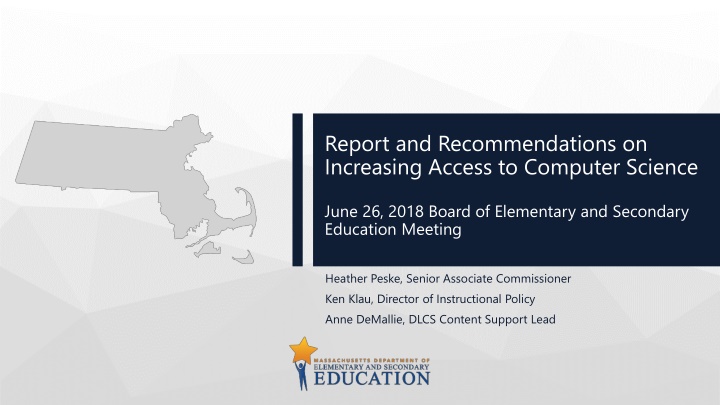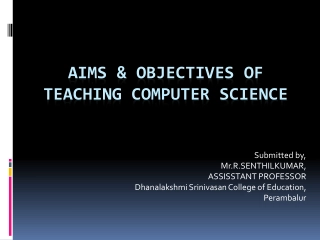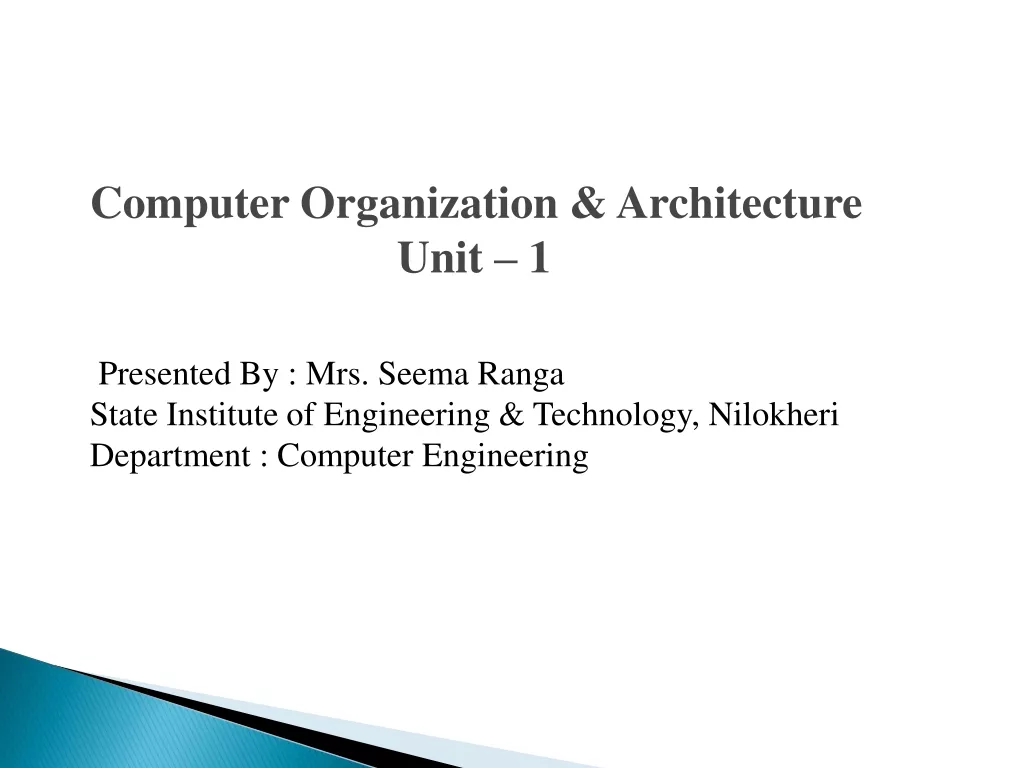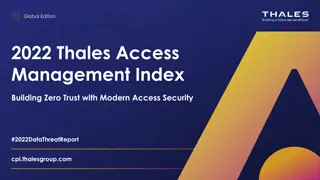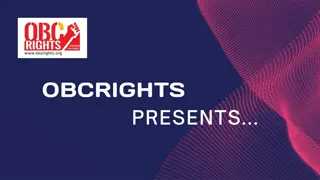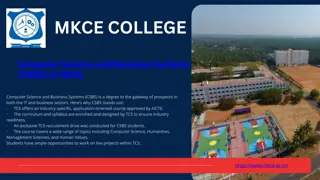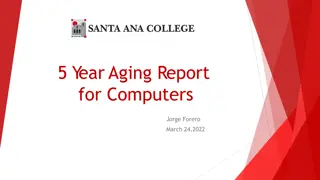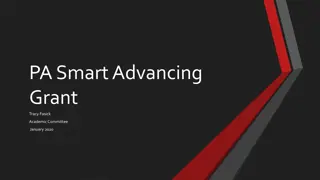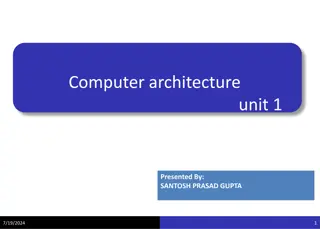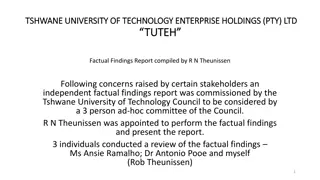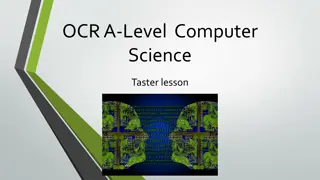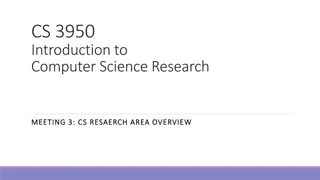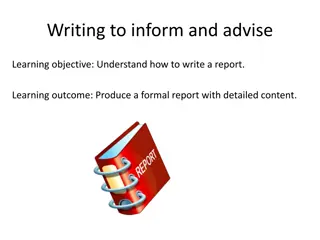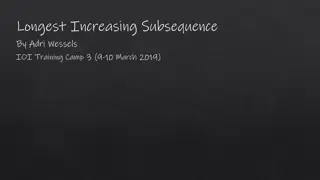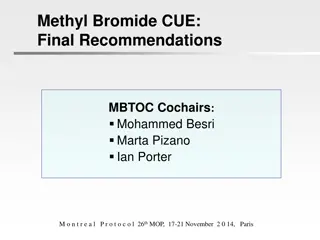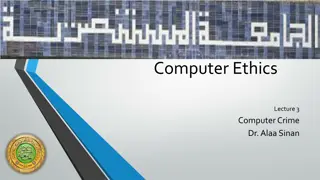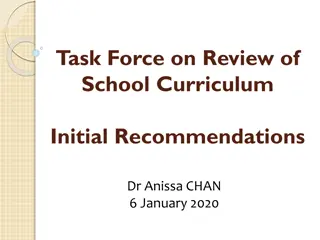Report and Recommendations on Increasing Access to Computer Science
In June 2018, the Board of Elementary and Secondary Education discussed a report and recommendations for enhancing access to computer science education in Massachusetts. The findings highlighted disparities in course availability, student participation, and performance, emphasizing the need to develop a long-term strategy to promote computer science education at the K-12 level. The report also outlined trends in MassCore completion rates and identified areas for improvement to increase student engagement in computer science fields.
Download Presentation

Please find below an Image/Link to download the presentation.
The content on the website is provided AS IS for your information and personal use only. It may not be sold, licensed, or shared on other websites without obtaining consent from the author.If you encounter any issues during the download, it is possible that the publisher has removed the file from their server.
You are allowed to download the files provided on this website for personal or commercial use, subject to the condition that they are used lawfully. All files are the property of their respective owners.
The content on the website is provided AS IS for your information and personal use only. It may not be sold, licensed, or shared on other websites without obtaining consent from the author.
E N D
Presentation Transcript
Report and Recommendations on Increasing Access to Computer Science June 26, 2018 Board of Elementary and Secondary Education Meeting Heather Peske, Senior Associate Commissioner Ken Klau, Director of Instructional Policy Anne DeMallie, DLCS Content Support Lead
Context Joint Board Meeting (January 2018) Charged DESE and DHE to form a working group to develop a specific proposal to: Develop a long-term strategy to enable many more students graduating from Massachusetts public high schools to study computer science/computational thinking as part of MassCore, the recommended program of studies in high school. Increase the number of students interested in pursuing computer science as a field of study in postsecondary education &, by extension, those students interested in pursuing careers in technology following graduation from a postsecondary institution. Landscape Analysis K-12 course taking patterns: course availability, participation, performance, and alignment to standards. Working Group Over 30 individuals from elementary, secondary, and higher education, nonprofits, and the private sector. 2 Massachusetts Department of Elementary and Secondary Education
Current MassCore Framework Subject English Language Arts Mathematics Units 4 4 Notes Including completion of Algebra II or Integrated Math equivalent. All students recommended to take a math course in senior year. Science 3 Of laboratory science. Coursework in technology/engineering courses may also count for MassCore science credit. History and Social Science Foreign Language Physical Education 3 2 * Including U.S. History & World History. Of the same language. * Physical education shall be taught as a required subject in all grades for all students. (M.G.L. c.71 3) Arts Additional Core Courses Additional Learning Opportunities 1 5 Elective coursework (including CTE) or any of the courses above. Total 22
5-Year Trend in % of Students Completing MassCore by Region Suburban (86.4% avg.) 100% 91% 89% 86% 85% 90% 81% 80% Rural (76.8% avg.) 82% 79% 70% 76% 74% 73% 68% 60% Urban (57.8% avg.) 61% 50% 54% 53% 53% 40% 30% 20% 10% 0% 2012-13 2013-14 2014-15 2015-16 2016-17 4 Massachusetts Department of Elementary and Secondary Education
Findings from the Landscape Analysis (2016-2017 Data) Course Availability 98% of suburban and 90% of rural high schools offered computer science courses, compared to just 77% of urban high schools. Among the schools that offered courses, higher proportions of white and Asian students took computer science than any other racial or ethnic group. Student Participation Pass rates for Hispanic and African-American students in computer science courses were less than white and Asian students. Student Performance Alignment to State Standards The majority of computer science courses offered in 2016-2017 align with less than one-third of the state s Digital Literacy & Computer Science (DLCS) standards. 5 Massachusetts Department of Elementary and Secondary Education
Findings from the Landscape Analysis Differences in High School Course Enrollment by Race & Ethnicity 6 Massachusetts Department of Elementary and Secondary Education
Findings of the Working Group Computer science knowledge and skills are foundational for a well-rounded education in the twenty-first century. Whether students decide to become full-fledged computer scientists or pursue other careers, the demand for workers who can engage in logical and abstract thinking, data analysis, creative problem solving, troubleshooting, and collaboration is continuing to increase dramatically. While all students should have access to computer science courses, particularly in high school, no incentives currently exist to encourage more students to take computer science in high school. Any effort to include a computer science component in MassCore should also provide opportunities for students to learn computer science in K-8. 7 Massachusetts Department of Elementary and Secondary Education
The Road Ahead Implemented Planned Adopted Digital Literacy & Computer Science (DLCS) standards Helping teachers integrate computer science across the curriculum K-8 Provided resources to schools to support DLCS implementation Exploring grant to develop integrated course pathways (e.g., Algebra I+C , Biology+C , etc.) Created a DLCS teacher s license (Grades 5-12) Convening instructional support networks for teachers, coaches, and DLCS Ambassadors Invited educator preparation programs to offer DLCS license programs Identifying additional course options (e.g., early college, dual enrollment, blended, online, and/or competency-based) Designated a DLCS Content Support Lead 8 Massachusetts Department of Elementary and Secondary Education
Summary of the Commissioners Recommendations affirm our commitment to expanding access to computer science coursework; amend MassCore to allow a computer science course that includes rigorous mathematical or scientific concepts and aligns with the Board's Digital Literacy and Computer Science curriculum standards, to substitute for either a laboratory science course or a mathematics course; initiate a collaborative process with the Department of Higher Education to identify the criteria necessary for computer science courses to be included as substitutions for MassCore mathematics and laboratory science courses; and request that we identify strategic opportunities for increasing the capacity of all educators to teach computer science concepts, as well as increasing as the supply of licensed computer science teachers. 9 Massachusetts Department of Elementary and Secondary Education
Proposed Amended MassCore Framework Subject English Language Arts Mathematics Units 4 3-4 Notes Including completion of Algebra II or Integrated Math equivalent. All students recommended to take a math course in senior year. Of laboratory science. Coursework in technology/engineering courses may also count for MassCore science credit. One unit of computer science that includes rigorous mathematical or scientific concepts & aligns with the DLCS standards may be substituted for either a laboratory science course or for a mathematics course. Including U.S. History & World History. Of the same language. * Physical education shall be taught as a required subject in all grades for all students. (M.G.L. c.71 3) Science 2-3 Computer Science 1 History and Social Science Foreign Language Physical Education 3 2 * Arts Additional Core Courses Additional Learning Opportunities Total 1 4-5 Elective coursework (including CTE) or any of the courses above. 22
